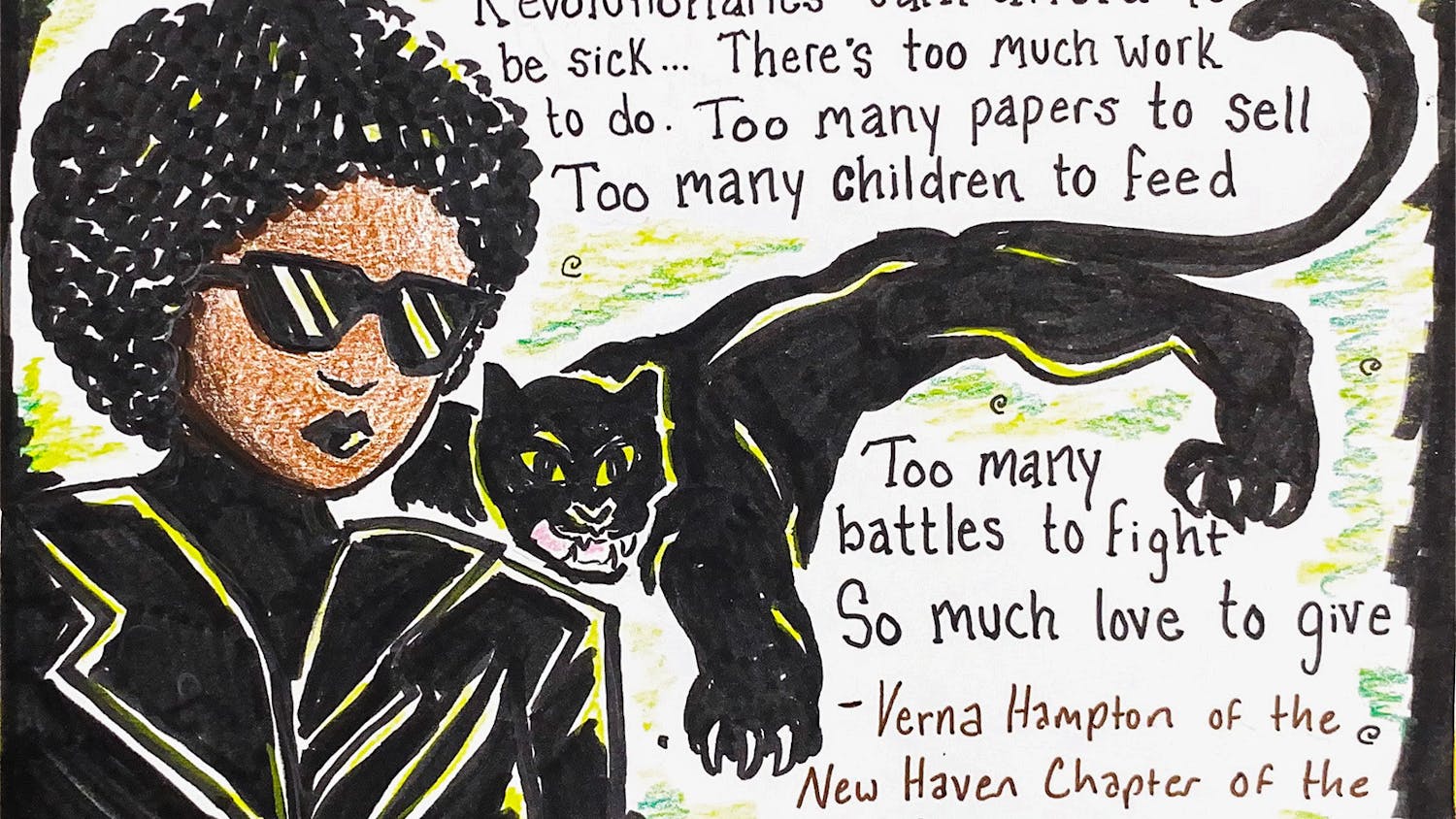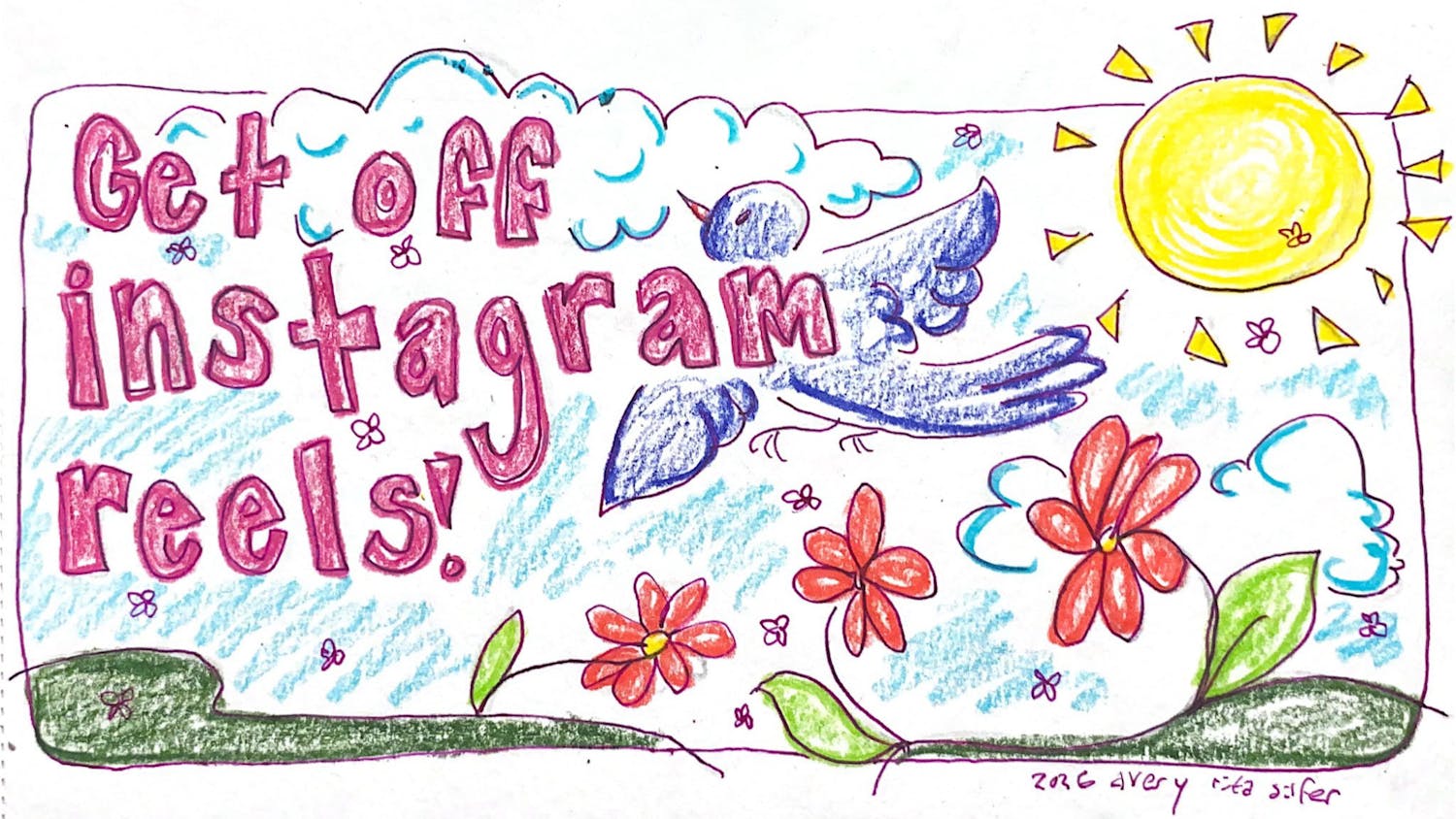As I took my seat in a dimly lit theater on Friday, April 22, I thought my anticipation for acclaimed writer and director Robert Eggers’ latest work couldn’t be any higher. After having to sit through a series of previews that was almost entirely made up of sequels, though, an unflinching, brutal and thoroughly original $60 million Viking spectacle sounded like just the right type of medicine for my blockbuster blues.
Of course, that isn’t to say that the only thing going for this film was its refreshing originality; given my utter adoration for Eggers’ past work with “The Witch” and “The Lighthouse” in tandem with an absolute beast of a cast (most of which have appeared in Eggers’ previous work), the stars aligned in such a way that my disliking of the film was a near impossibility. But my feelings on the film were not as fated as our titular hero’s storyline.
The film derives its story from the same Nordic tale that inspired Shakespeare’s “Hamlet” but retains a much closer divinity to the former. A young prince named Amleth, played in adult form here by an absolutely brutish Alexander Skarsgård, witnesses the death of his father and king Aurvandil, an astounding Ethan Hawke, at the hands of his uncle Fjölnir, portrayed by a stoic and powerful Claes Bang. Eggers' co-writer and Icelandic poet Sjón make brilliant work in adapting and maintaining the story’s simplistic power.
The cast is rounded out by a delightfully conniving Anya Taylor-Joy, whose first film role was in Eggers’ “The Witch,” a mysterious and mystical Björk in all too small of a role, and Skarsgård’s “Big Little Lies” co-star Nicole Kidman as the queen and mother to Amleth, Gudrún. Taylor-Joy’s character, though, is the only one that manages to escape the narrative trappings of simply assisting the leading male characters on their journeys, albeit only barely.
Eggers is swift with the story’s initial setup; it’s familiar, but for good reason. It’s clear from the outset that this film is not one with grand narrative ambitions in mind. Instead, Eggers turns his hyper-detailed eye toward the world-building and immersiveness of his Viking tale, opting not for narrative grandiose but for visual and cinematic grandiose. It’s no chore for the audience to keep in mind the emotional stakes of the film’s plotline, allowing for the viewer to simply bask in every visual and historical treat that Eggers has to offer.
And it’s within the visuals that Eggers attempts, and thoroughly succeeds, at guiding us through this world he has brought back to life. You would be hard-pressed to find a single shot in the film that’s less than 10 seconds long, with Eggers opting for extreme long takes and brilliantly executed Steadicam work to push and pull viewers through every brutally raw hit and savagely engrossing kill.
It’s the brutality of the film that is certain to jar most viewers; Eggers is not afraid to show the gruesome way in which Vikings would dispatch their opponents. There are some moments that, although most likely historically accurate, could come off as comical to some. Luckily, Eggers found the perfect leading man with Skarsgård elevating each guttural roar and wolf howl to feel entirely believable and grounded.
Of course, even with the film’s dedication to historical accuracy, I hesitate to describe the film as grounded; Eggers takes us to the “Gates of Hel” after all. Eggers and Sjón seem to be well aware that a film of this nature — that is to say an epic Viking revenge tale — has endless potential to be boundlessly entertaining. And entertaining it is with every moment, every second being entirely exciting and engrossing.
It’s in this pursuit of boundless entertainment that perhaps “The Northman” sacrifices some of what made Eggers’ previous material so enchanting. There is no eerie and terrifying mystery like in “The Witch” and there isn’t some strange psychological (and maybe psychosexual) message to be sought like in “The Lighthouse.” The film, even with its plethora of interesting and somewhat thought-provoking inclusions and portrayal of Norse culture, is ultimately surface level.
But as I departed the theater, ruminating on whether or not I had just found myself disappointed by an Eggers’ feature, one thought stuck out in my mind: I could not wait for the next opportunity to immerse myself back into Eggers’ world and give myself to what is always entirely a grand and uniquely cinematic experience.
John Scott is the managing editor at the Daily Lobo. He can be contacted at managingeditor@dailylobo.com or on Twitter @JScott050901
Get content from The Daily Lobo delivered to your inbox






